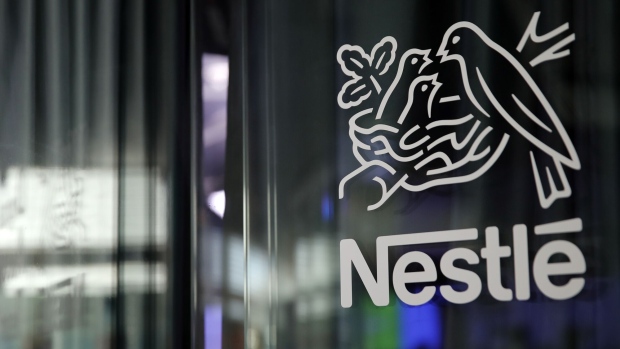Loblaw boycott organizer says she met with CEO to talk about grocery prices
, The Canadian Press
One of the organizers of a month-long boycott of Loblaw-owned stores says she met with the grocer's president and CEO Per Bank on Thursday afternoon.
Emily Johnson, who started the Reddit page that led to the boycott, said she shared shoppers' concerns and questions with Bank, a European retail executive who took on the top role about months ago.
"Obviously, the boycott is still on," said Johnson. But she said she's "confident in the fact that we got an audience, we have their attention, and they're listening to what we have to say and what we want to do."
Loblaw said earlier in the week that it had reached out to boycott organizers to set up a meeting.
Bank believes the conversation was productive, said Loblaw spokeswoman Catherine Thomas: "We’re listening, and thought it was important to hear her concerns in person."
The CEO discussed some of the things the grocer is doing to try to help customers struggling with the cost of living, Johnson said.
One of these is removing "multi-buy" promotions — where customers get a better price per unit if they buy more than one item — from No Frills stores.
Shoppers on tighter budgets can't take advantage of such deals if they aren't able to afford four items instead of one, for example, even when the price per unit is lower.
"Customer feedback in those stores was that it wasn’t a benefit to them (particularly as basket sizes are smaller there) and that they value this change," said Thomas in an email. "In other stores, where customers tend to buy more, multi-buys are often a popular sale."
Bank and Loblaw chairman Galen Weston spoke at the company's annual general meeting Thursday where they pushed back on what they called "misguided criticism" of the company.
“Let me assure you that in every corner of the business, our colleagues are working hard to reduce costs and do things more efficiently. These efforts enabled us to reinvest savings to offset the impact of price inflation in our stores,” Bank told shareholders at the meeting.
Johnson started a Reddit page about high grocery prices in November and it quickly attracted attention from frustrated shoppers. It now boasts tens of thousands of members.
As the number of people in Johnson's Reddit group grew, so did calls for a boycott. The official start date for the boycott was May 1, the same day that Loblaw reported its first-quarter profits grew by almost 10 per cent from the same period last year.
Customers have been growing increasingly frustrated with rising food prices and the profits earned by grocery companies, and Loblaw has been at the epicentre of many of these frustrations.
“As a well-known company and Canada's largest grocer, it is natural that Loblaw would be singled out as a focal point for media and government and of course consumer frustrations,” Weston said at Thursday's meeting.
Johnson said the request for a meeting from Loblaw took her by surprise, and at first she and the other organizers weren't sure whether she should take it.
"For me, it was ... 'let's hear them out,'" she said. "Because if we're not here to to fix the problem, or if we're not here to try and fix the problem, you know, then why are we boycotting at all?"
"My goals were to sit down and to have the conversation with him, to share these perspectives, to hear their perspective and to present that information back to the community."
On May 3, the boycotters also launched a petition sponsored by NDP MP Matthew Green calling upon Parliamentarians to address "monopolistic practices in the food retail sector," investigate practices like shrinkflation and allegations of price-fixing or collusion, implement measures to promote fair competition in the food retail industry, explore ways to prevent "excessive price gouging on essential food items," and make Loblaw and Walmart sign the grocery code of conduct.
A House of Commons committee has been studying food prices as well as the grocery code of conduct, and has urged the two grocers to sign on. And last June, the Competition Bureau released a report on the grocery sector, calling it concentrated and making recommendations to improve competition in the industry.
Johnson previously told The Canadian Press that while the primary aim of the boycott is to have a financial impact on the company, she also hopes the boycott educates people and gets the attention of government.
This report by The Canadian Press was first published May 3, 2024.



